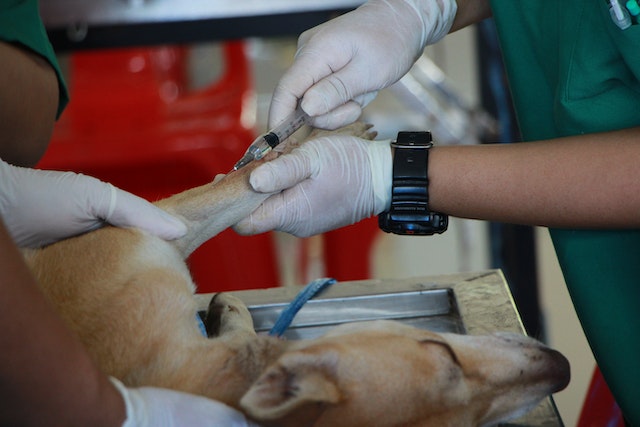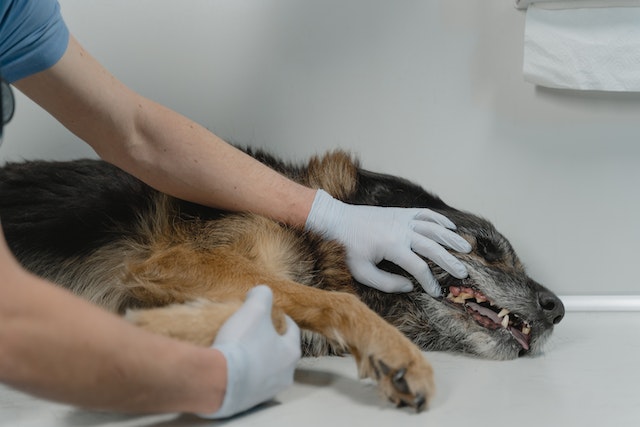Contagious and Non-Contagious Dog Disease
Many dog owners get worried when their dog became sick because it can be contagious. They get more worried if there are children in the house and they might catch up with the disease.
Here, we will discuss a few queries about dog infections that many canine owners worry about. Let’s overview which dog diseases are contagious and which are not.
Is Dog Infection Contagious to Humans?
No, dog ear infections are not contagious to people or other dogs. However, they can be caused by other factors such as bacteria, yeast, or allergies, and can spread within the same dog if not treated properly.
So, humans should not worry about a dog’s ear infection being contagious but they should take the necessary treatment that the dog requires.
Are Dog Worms Contagious to Humans?
Yes, some types of dog worms can be contagious to humans as well as to other dogs. Dogs can become infected with worms through various means, including ingesting infected feces, being bitten by an infected insect, or eating infected prey such as rodents.

Here are some common types of contagious dog worms: Roundworms, Hookworms, and Tapeworms.
It’s important to take precautions to prevent the spread of dog worms, such as regularly deworming your pet, practicing good hygiene, and keeping your dog’s living areas clean.
If you suspect that your dog may have a worm infection, it’s best to consult with a veterinarian for a proper diagnosis.
Several diseases that dogs can carry are contagious to humans and are known as zoonotic diseases. Some of the most common zoonotic diseases that dogs can transmit to humans include:
Other Dog Diseases That are Contagious to Human
Besides some types of worms, there are other dog diseases that can be contagious to humans. Let’s look at some of them:
Rabies
Rabies is a viral disease that can cause severe neurological symptoms and is almost always fatal once symptoms develop. Even the survival chance of the patient is too low if they didn’t get a vaccination in time. It can transfer to humans if the infected dog bit the human.
Ringworm
Ringworm is a fungal skin infection that can cause a rash or scaly patches on the skin. It can transfer from dogs to humans through direct contact in the infected area.
Campylobacteriosis
Campylobacteriosis is a bacterial infection that can cause diarrhea, abdominal pain, and fever in humans. It can transfer from dogs to humans from contact with infected dog feces.
Salmonellosis
Salmonellosis is a bacterial infection that can cause diarrhea, fever, and abdominal cramps in humans. It can transmit to humans through contact with dog feces or infected food.
E. coli infection
E. coli infection is a bacterial infection that can cause diarrhea, cramping, and fever in humans. It can transmit to humans from exposure to dog feces and contaminated food or water.
Leptospirosis
E. coli infection bacterial disease that can cause flu-like symptoms, jaundice, and kidney damage in humans.
You must practice good hygiene, such as washing your hands. Additionally, pet owners should take steps to prevent their dogs from being exposed to potential sources of infection, such as contaminated food or water.
Other Non-Contagious Dog Disease
Zoonotic diseases are those diseases that can transfer from animals to humans. some of them are as follows:
Canine parvovirus:
A highly contagious viral disease that can cause severe vomiting and diarrhea in dogs.
Canine distemper
A viral disease that affects the respiratory, digestive, and nervous systems of dogs.
Kennel cough
An upper respiratory tract infection can cause coughing, sneezing, and nasal discharge in dogs.
Canine hip dysplasia
A genetic condition that affects the development of the hip joint in dogs and can cause arthritis.
Diabetes mellitus
A metabolic disorder that affects the ability of the body to produce or use insulin properly.
Hypothyroidism
A hormonal disorder that affects the function of the thyroid gland in dogs and can lead to weight gain, hair loss, and fatigue.
Doglime for more information on canine-related information.










